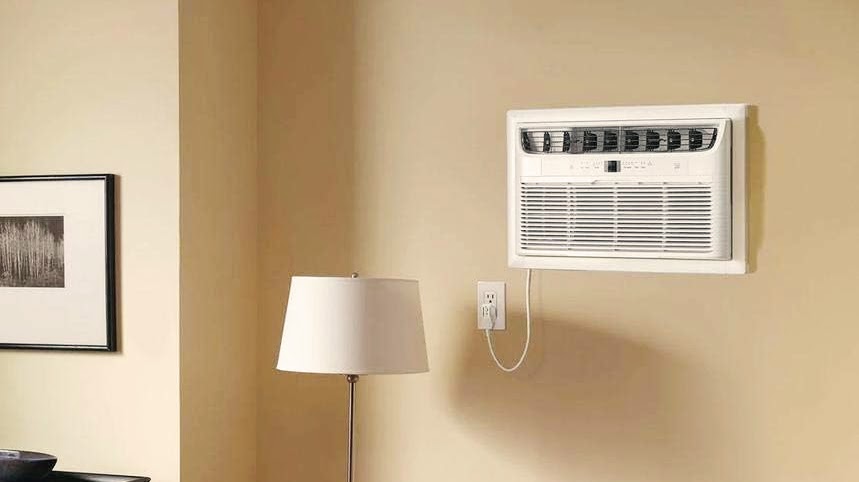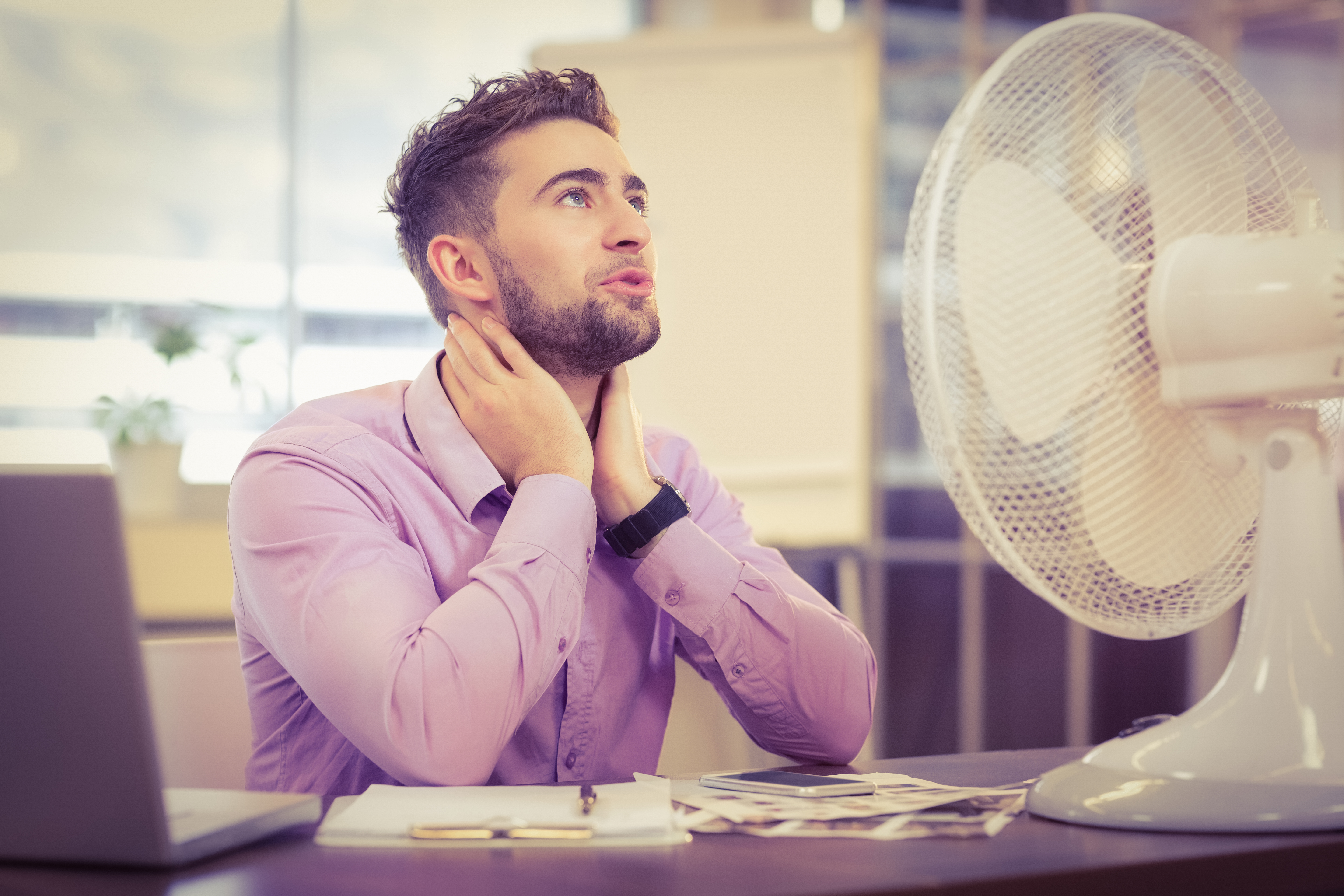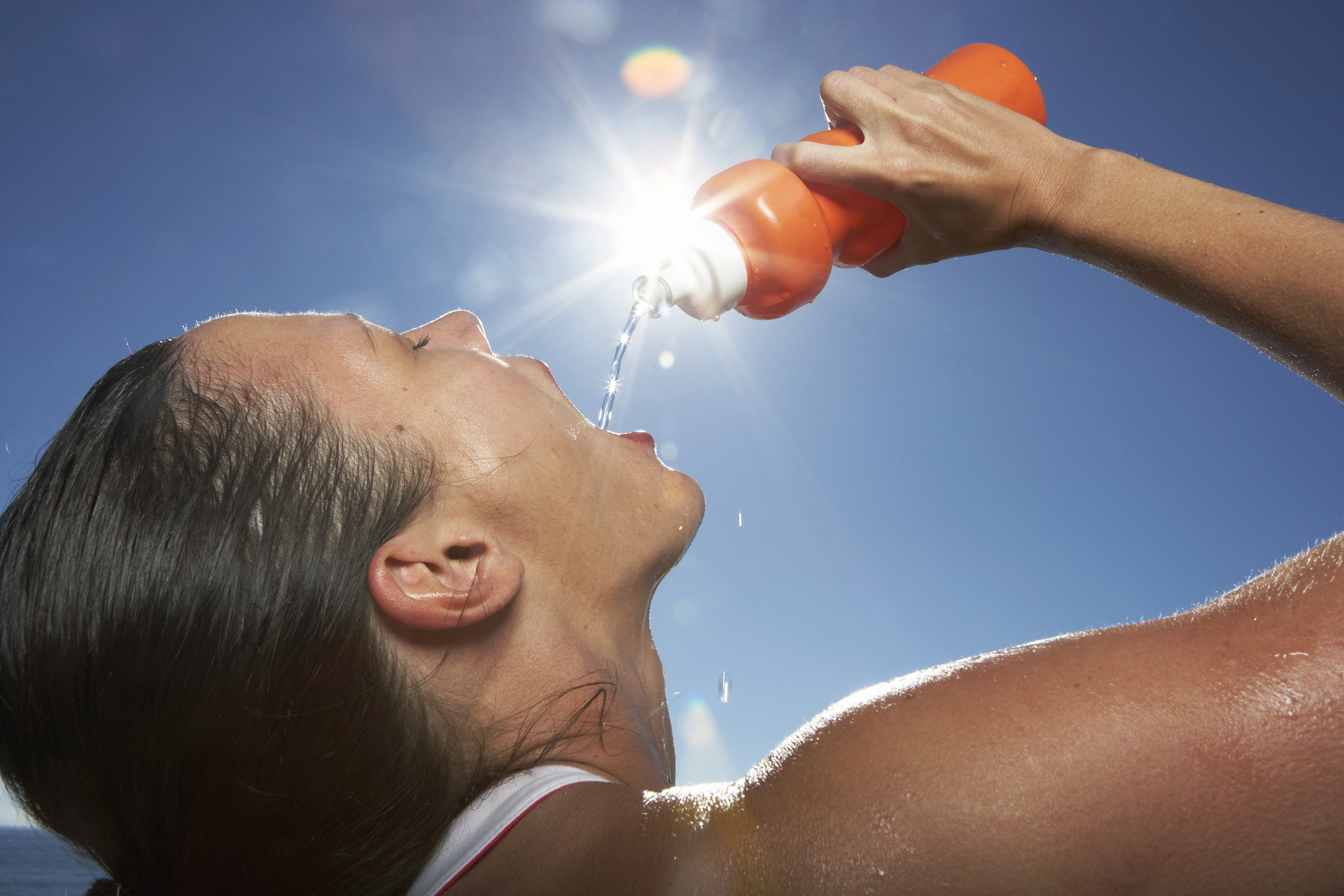How to survive a heatwave
Tips on keeping cool in the extreme heat

Sign up to receive the latest news, reviews, buying guides and deals direct to your inbox
You are now subscribed
Your newsletter sign-up was successful
Year after year, the world is hit with severe heatwaves - and an increasing number of scientists are saying that cooling technology is the key to surviving heatwaves.
It is only June, and cities in the Southwest are already experiencing sweltering spikes in temperature - San Francisco has reached temperatures of 100 degrees Fahrenheit, Las Vegas 102 degrees, and Phoenix 109 degrees. Weather forecasts predict that the heat will spread to the Midwest and North this week, with an expected high of 90 degrees Fahrenheit.
The human body isn’t designed to withstand extreme temperatures, and any number above 104 degrees is likely to result in a heat stroke. The elderly and children, in particular, are at a greater risk of experiencing a heat-related injury. The World Health Organization reports that diagnoses of heat-related illnesses will increase to more than 250,000 by 2050. The best way to survive a heatwave is by adopting a policy of preparation and prevention (and by checking out guides such as for the best central air conditioner units).
Preparation tips for surviving a heatwave
The best cure for any problem is prevention. By preparing for the heatwave, you can avoid an unpleasant summer that negatively impacts your health.
Install an air conditioning unit
A key to surviving a heatwave is to install a central air conditioning unit. Central air conditioning units contribute to saving lives, as the number of people dying from heat-related illnesses is increasing each year. This high fatality rate disproportionately affects the elderly and people who suffer from a chronic condition. This is because their bodies have a reduced ability to cool themselves down, making them more susceptible to heat.
There are a number of air conditioners available, from big central air conditioning units to smaller wall-mounted or window units for single rooms, to portable models useful if traveling in an RV on a family vacation.
Sign up to receive the latest news, reviews, buying guides and deals direct to your inbox
You can even construct your own rudimentary air conditioner by placing a tray of ice in front of your desk fan. If you happen to be crafty and good at DIY projects, you can build a more sophisticated home-made air-conditioner.
Regardless of where you are, creating a cool environment will increase your comfort levels while minimizing risks to your health.

Create a cross-draft in your room
Use tower fans, desk fans, and even open windows to create a cross-breeze in each room in your home. By having this cross-draft, you will have a natural channel of flowing cool air. This will prevent the air from becoming hot and hard to breathe. This is especially important for people who suffer from respiratory conditions like asthma.
If you live in an environment that has dry heat, one of the best portable swamp coolers might also help prevent overheating. These nifty machines cool a room by releasing moisture into the air.
The breeze created by the fans will not only keep you cool but also provide a pleasant draft that will soothe your skin.
Examine your living space and consider what rooms have the most natural potential for creating cross drafts. If you want to go the extra mile, you can place a tray of cold ice in-front of the fan to create an extra cool stream of air.
Buy light and loose fabrics
Another tip to stay cool: buy light cotton bedclothes and sheets. The light cotton sheets allow for increased airflow in the bed, and they are not as heavy as satin or polyester sheets. These sheets are not as form-hugging, enabling a cool sleeping experience. We highly recommend Egyptian cotton sheets for keeping cool and getting some sleep during those long, hot nights.
Here's another trick called the "Egyptian Method": place a damp towel over the top of your bed sheets. The moisture will keep you cool through the night, allowing for more restful sleep. Some people even put their sheets in the fridge for an hour before going to bed.
The clothes you wear also affect how hot or cool you feel. Wearing looser clothes will help you keep cool. It is also important to consider the color of the clothes you are wearing: lighter-colored ones reflect the heat better than darker-colored garments, which absorb heat quicker. Avoid black and navy blue colors to prevent overheating.

Another way to survive the stifling temperatures of a heatwave is to avoid activities that might be taxing on your body, which would increase internal heat.
Avoid outdoor activity
During a heatwave, it's best to avoid any unnecessary physical activities outside. It is harder for your body to regulate its temperature when you are outside, meaning that the potential effects of a heatwave are going to be worse. When possible, stay indoors in a cool environment and avoid physical exertion.
Take frequent breaks
If you have to work outside, make sure to take breaks very often. Doing so will reduce the risk of overexertion and heat-related illness. It is also best to take these regular breaks in a shaded area.
Drink plenty of water
It is especially important to drink a lot more water during a hot day. This becomes crucial when engaged in physical activity outside and sweating a lot. This prevents dehydration, cools you down from the inside, and restores all the minerals that are lost through sweating. Dehydration is often a symptom of many heat-related illnesses like heat exhaustion and heat stroke.
Make a point of drinking more water by carrying a chilled flask or bottle of it with you.
Reviews
Whirlpool 24" Stainless Steel AI Dishwasher Review
Napoleon TravelQ PRO285 Portable Gas Grill review
Dreame L40 Ultra Robot Vacuum Cleaner and Mop review: almost hands-free cleaning
GE Profile Smart Mixer with Auto Sense review: a powerful, thorough mixer
Echo eForce DPB-2500 review: a leaf blower as a snow removal tool?
DPAS-2100 + Pro Paddle Attachment review: a new way to remove snow this winter?
Midea MAD53109APK 5.5QT Air Fryer review: a small, simple, and highly effective option
Eureka J15 Pro Ultra Robot Vacuum review: hands-free cleaning for busy families
Night is no solace
A lot of people think that nighttime will bring cooler temperatures - but due to the changing patterns in climate, this is no longer true.
A 1995 study in Chicago showed that a reluctance to open windows at night or turn on the air conditioning unit has resulted in an increased number of deaths. As the temperatures of heatwaves continue to soar, the nightly temperatures will too. This means that there will be less respite in the evening, and you may have to continue cooling the environment throughout the night.
Prevent overheating at night by changing your bedclothes to a lighter fabric, wearing looser clothes to bed, and even chilling your sheets in the fridge before bedtime.
Know the common signs of heat related illnesses
It is important to be aware of the symptoms and warning signs of heat-related illnesses. They include:
- Heat exhaustion
- Faintness
- Dizziness
- Clammy skin
- Cramps
- Fatigue
- Dehydration
For more in-depth information on heat related illness, visit the CDC's website.
Be aware if you are in a high risk category
One of the keys to surviving a heatwave is to be aware if you are in a high-risk category for heat-related illness. The high-risk groups include the elderly, children, athletes, outdoor workers and people with chronic conditions.
